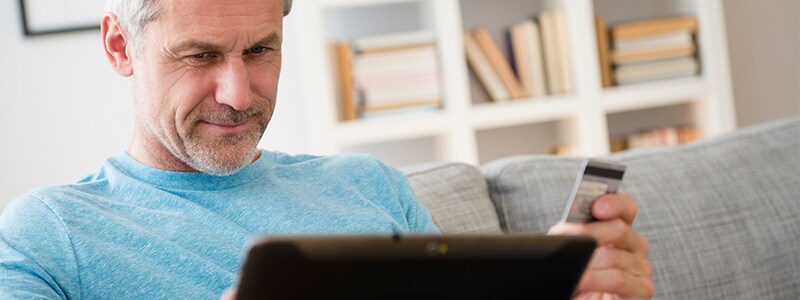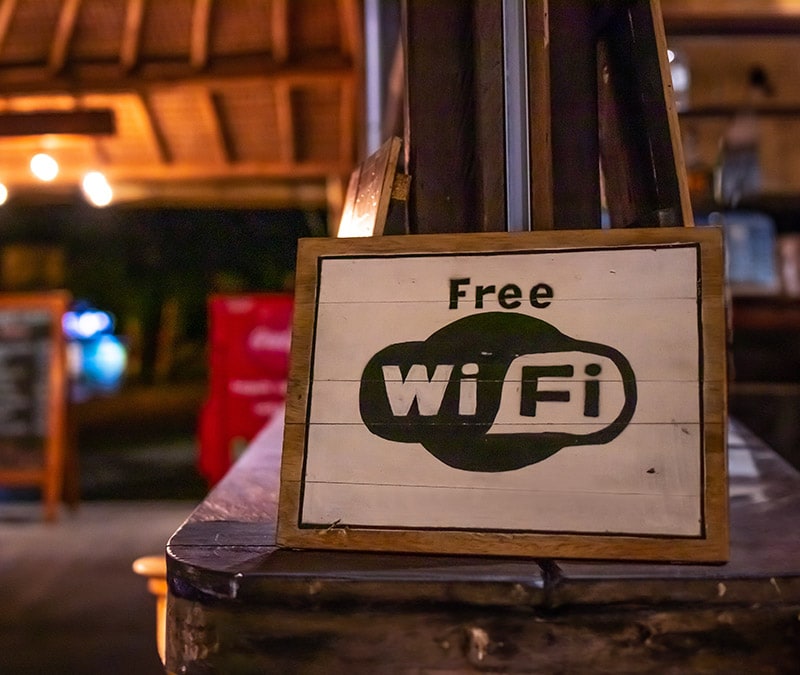Is a VPN the safest way to browse the internet?
What is a VPN and is it the safest way to browse the internet?

Whether you’re at a coffee shop, on the bus or even in the comfort of your own home, there’s one thing you should know about browsing the web on a public Wi-Fi connection.
It may not be safe.
With most shopping centres or buildings having some access to free Wi-Fi, it’s all too easy to hop on a network and start posting on social media or going about your business. Sending a couple of tweets or posting a few images is probably fine, but it’s actions like logging into your online bank account, shopping online or sending emails that could mean big trouble for you.
Unfortunately, logging online without any kind of protection open the door for anyone to watch what you’re doing. It’s a scary thought, especially when it comes to entering your bank details or giving away your important passwords.
The truth is that you can never be too safe online, so a Virtual Private Network (VPN) could be the best way for you to use the internet.
What is a VPN and how does it work?
A VPN is a tool that encrypts traffic through a private network.
That’s quite the mouthful, and it essentially means that the VPN scrambles any information you’re sending so that if someone is watching or trying to steal your info, it won’t make any sense to them.
VPNs are simple to use and setting one up often means that hackers can’t monitor your activity online. When you use a VPN, you establish a unique private network connection with the VPN’s server. Why go to the effort? Well, it lets you:
- Hide your IP address or location, so that you’re harder to track.
- Encrypt data like passwords and sensitive information instead of sending it over the web in plain text that any hacker or criminal could access.
- Stay anonymous while browsing the web.
Why do people use a VPN?
The internet can be a bit like the Wild West – often because people take unnecessary risks. Public Wi-Fi networks are made easily accessible so that everyone can use them. Sometimes, that can include hackers. In busy places, there might be a chance that cybercriminals are ‘listening in’ and potentially viewing what you’re sending in real-time.
This can be a problem if you’re paying a bill on-the-go, using your go-to password and email address combo, sending a work email or logging into any of your financial accounts. Hackers are able to intercept this information with ease if the network is public. They might even set up a Wi-Fi access point with a similar name to lead you to believe it’s an innocent connection.
For example, let’s say you go into a coffee shop called ‘Joe’s’. Joe’s mightn’t even have free Wi-Fi, but a hacker could create a Wi-Fi access point and call it Joe’s – and you could join the Wi-Fi connection and then they’d have complete access to everything you were doing.
They can then use the stolen data in a variety of ways, including impersonating you, learning what you’re sending through email, accessing your personal accounts or selling it online.
People also use VPNs to change their location and connect to social media networks, stream geo-locked content and do other things on the internet that may not be possible in their current area.
VPNs provide a high-level of encryption, with some even offering bank-grade encryption, to ensure that no matter what you do you’re protected online. Given the high-profile breaches and hacks that have happened in recent time, everyone who’s planning on using public Wi-Fi should strongly consider using a VPN.

What should I look for in a VPN?
Not every VPN is built the same. It gets a little complicated, but there are a number of protocols available and each have their own characteristics. Point-to-Point Tunneling Protocol (PPTP), for example, is one of the oldest protocols available but it’s less secure in comparison to newer technology.
The protocols that currently offer the strongest encryption and security standards are: OpenVPN, Secure Socket Tunnelling Protocol (SSTP) and Internet Key Exchange Version 2 (IKEv2).
It’s tempting to go with a free VPN solution, but you should be wary of them. These companies still have to keep the lights on and if you’re not paying for it, then there’s a chance that they could be selling your information to online advertisers.
If you are considering getting a VPN, look out for:
- Strong encryption standards.
- A VPN protocol that’s the best you can get.
- Works on Windows, Mac, iOS and Android devices.
- Doesn’t keep a log of traffic on the VPN server.
- Easy to set up and use.
It’s time to start securely browsing the web. Find out more about how the Norton Secure VPN can keep your data safe.
Editorial note: Our articles provide educational information for you. Our offerings may not cover or protect against every type of crime, fraud, or threat we write about. Our goal is to increase awareness about Cyber Safety. Please review complete Terms during enrollment or setup. Remember that no one can prevent all identity theft or cybercrime, and that LifeLock does not monitor all transactions at all businesses. The Norton and LifeLock brands are part of Gen Digital Inc.




Want more?
Follow us for all the latest news, tips, and updates.